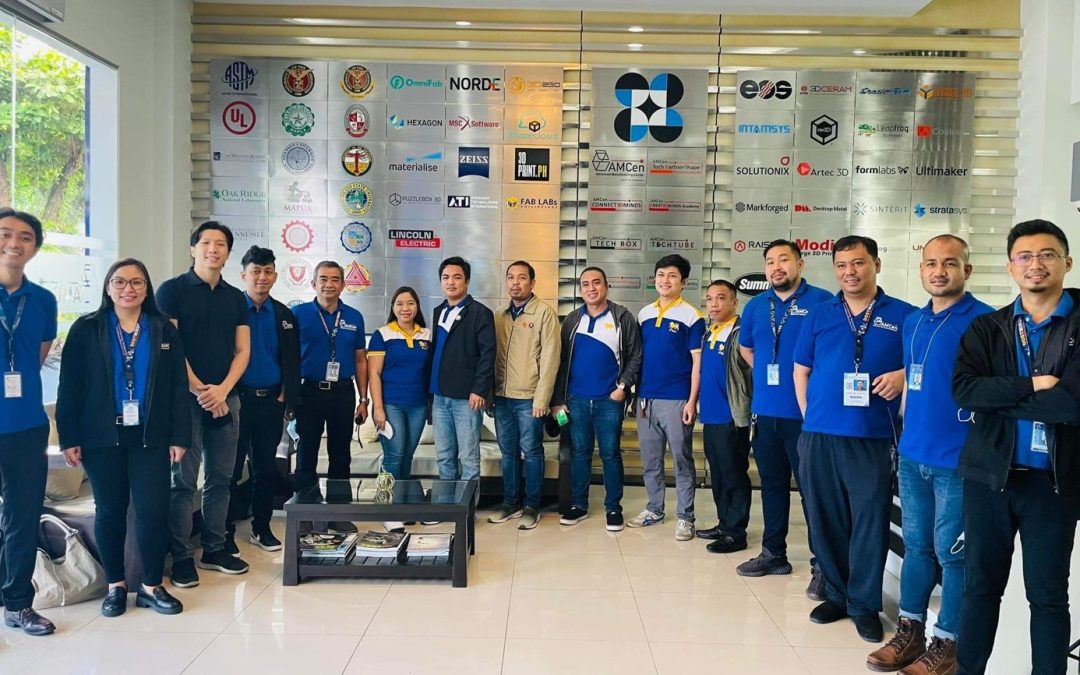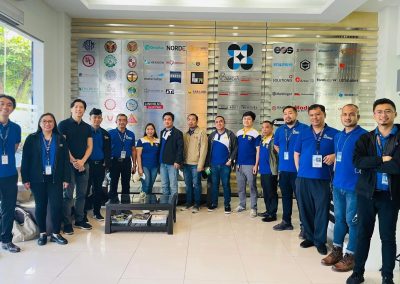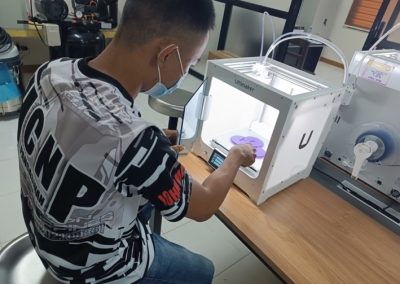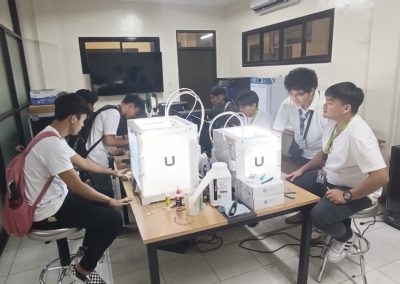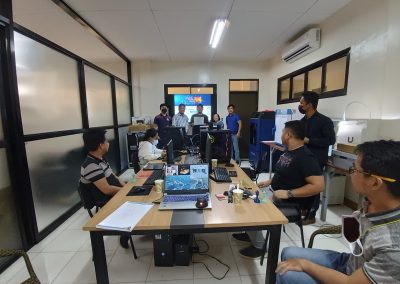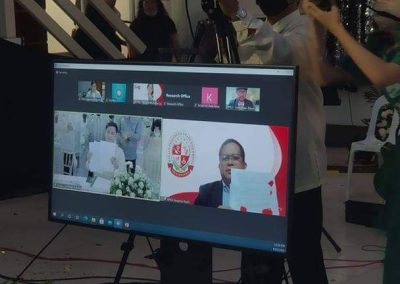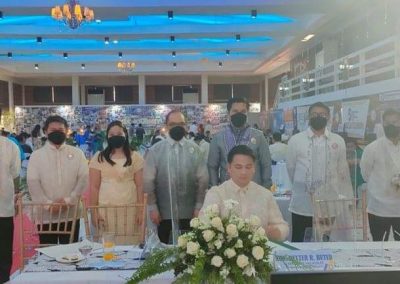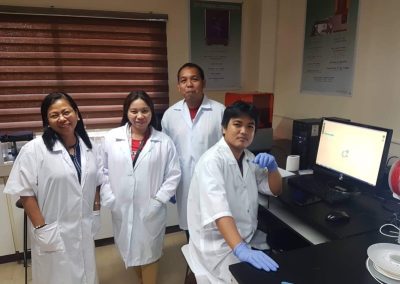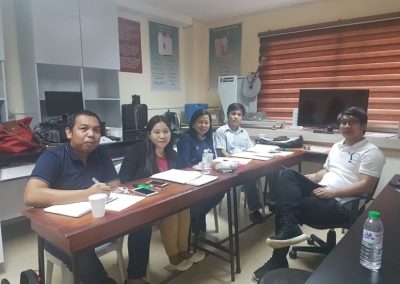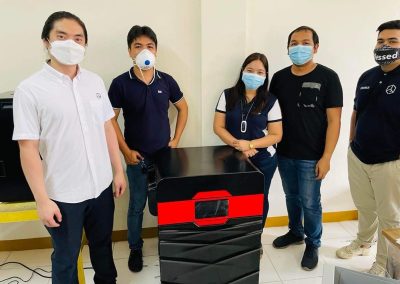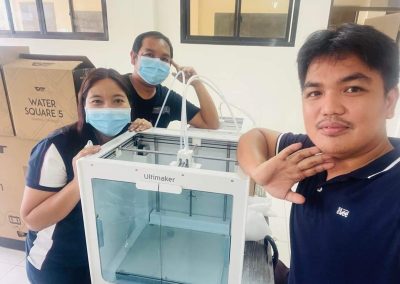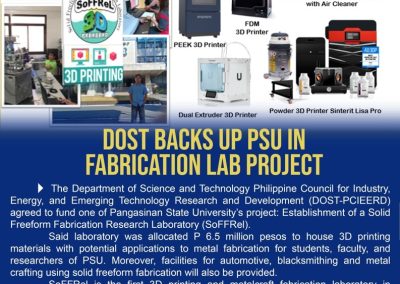In a groundbreaking move towards technological advancement, the Pangasinan State University, Urdaneta City Campus, has established a Solid Freeform Fabrication Research Laboratory (SoFFReL) under the leadership of Dr. Honorio L. Cascolan, Campus Executive Director. SoFFReL’s Vision is “To become the leading research laboratory in 3D Printing that supports the new generation of digital manufacturing and provides a state-of-the-art facility to industries, professionals, faculty, and students”. The Mission of SoFFReL is “To deliver innovative solutions and revolutionized manufacturing through 3D printing”. The laboratory is equipped with state-of-the-art 3D printers, setting the stage for cutting-edge research and development which started from January 3, 2020-January 3, 2022.
The ambitious project, spearheaded by Engr. Rex B. Basuel, the Dean of the College of Engineering and Architecture, has garnered substantial support from the Department of Science and Technology Philippine Council for Industry, Energy, and Emerging Technology Research and Development (DOST-PCIEERD). DOST-PCIEERD provided a substantial grant of Php. 6,280,890.00, facilitating the creation of this innovation hub.
The SoFFReL initiative was born out of a 6-month training course in Additive Manufacturing (AM) held at the Bataan Peninsula State University (BPSU) and led by Dr. John Ryan Dizon. The training, which took place from January 27, 2020, to July 31, 2020, was funded by DOST-PCIEERD and aimed to enhance the expertise of four PSU faculty members: Dr. Lina Cancino, Dr. Honelly Mae Cascolan, Engr. Rodel Hacla, and Engr. Rex Basuel in the field of Additive Manufacturing (AM).
Following the successful completion of the training, the proposal for the SoFFReL was submitted, presented, and ultimately approved by DOST-PCIEERD. The laboratory is now equipped with a range of advanced tools, including an Industrial 3D Printer, Desktop 3D Printer, 3D Laser Printer, and essential consumables for 3D printing. Its primary focus lies in working with thermoplastic materials, a specific type of plastic, and aims to enhance and modernize processes and production techniques in various fields such as metalcraft, the salt industry, and academia in Pangasinan, using the cutting-edge technology of 3D printing.
On December 22, 2020, a significant milestone was achieved when a Memorandum of Agreement (MOA) was virtually signed between PSU and DOST-PCIEERD, under the guidance of Dr. Enrico Paringit and the former president of PSU, Dr. Dexter Buted. Dr. Buted emphasized the laboratory’s potential to benefit students, faculty, and researchers, asserting that it would be integrated into the curriculum for engineering and architecture programs. This integration will enable students and faculty members to gain valuable skills in the field of additive manufacturing.
The SoFFReL project, spanning a 2-year duration, officially commenced on January 3, 2020, and successfully concluded on January 3, 2022, even amid the challenges posed by the ongoing pandemic. In its first year of operation, the laboratory organized a series of webinars and workshops focused on 3D Printing awareness, engaging universities and metalcraft industries across Pangasinan. The project exceeded its target by attracting over 100 participants through online platforms.
Throughout the year, the project also signed five memorandums of agreement (MOAs) with collaborating Higher Education Institutions (HEIs) and industries. Five research papers as shown in Table 1 were internationally published in reputable Scopus-indexed journals. Additionally, the project introduced three cutting-edge technologies and provided an extension service. The impact extended to the educational sector, with Additive Manufacturing (AM) being integrated into the BS Computer Engineering curriculum at PSU Urdaneta Campus, a change that was later approved by CHED (Commission on Higher Education).
Table 1: List of Publications
| Title of the Publication | Journal | Indexing Body | Author/s | Year Published | DOI |
| Post-Processing of 3D-Printed Polymers | Technologies | Scopus | John Ryan C. Dizon, Ciara Catherine L. Gach, Honelly Mae S. Cascolan, Lina T. Cancino, and Rigoberto C. Advincula
|
2021 | 10.3390/technologies9030061 |
| 3D Printing Polymeric Materials for Robots with
Embedded Systems |
Technologies | Scopus | Ray Noel M. Delda, Rex B. Basuel, Rodel P. Hacla, Dan William C. Martinez,
John-John Cabibihan, and John Ryan Cortez Dizon
|
2021 | 10.3390/technologies9040082 |
| A Comprehensive Review on the Application of 3D Printing in the
Aerospace Industry
|
Key Engineering Materials | Scopus | Dan William C. Martinez, Michaela Espino, Honelly Mae S. Cascolan,
Jan Lloyd Crisostomo, and John Ryan C. Dizon |
2022 | 10.4028/p-94a9zb |
| 3D Printing Technology and Materials for Automotive Application: A Mini-Review | Key Engineering Material | Brian J. Tuazon, Nick Anthony V. Custodio, Rex B. Basuel, Lanz Andre Delos Reyes, and John Ryan C. Dizon
|
2022 | 10.4028/p-26o076 |
Since its inception, the SoFFReL laboratory has been actively used by faculty and students from various HEIs, including high school students, for their theses and research projects. Furthermore, a series of benchmarking activities involving different HEIs and industry players have been conducted, solidifying the laboratory’s reputation as a hub of innovation and research.
Looking ahead, the laboratory is poised to play a major role in PSU’s forthcoming DOST NICER project in collaboration with DOST AMCen. Its focus will be on developing equipment made of engineering plastics for salt manufacturing in Region 1.
Excitingly, the SoFFReL laboratory is also engaged in potential material science projects in partnership with Dr. Rigoberto Advincula, a Professor at the University of Tennessee’s Oak Ridge National Laboratory, further cementing its status as a dynamic hub of innovation and research.
The establishment of SoFFReL at PSU-Urdaneta City Campus marks a significant leap forward in the fields of 3D printing and additive manufacturing, offering a wealth of opportunities for research, education, and industry collaboration.
